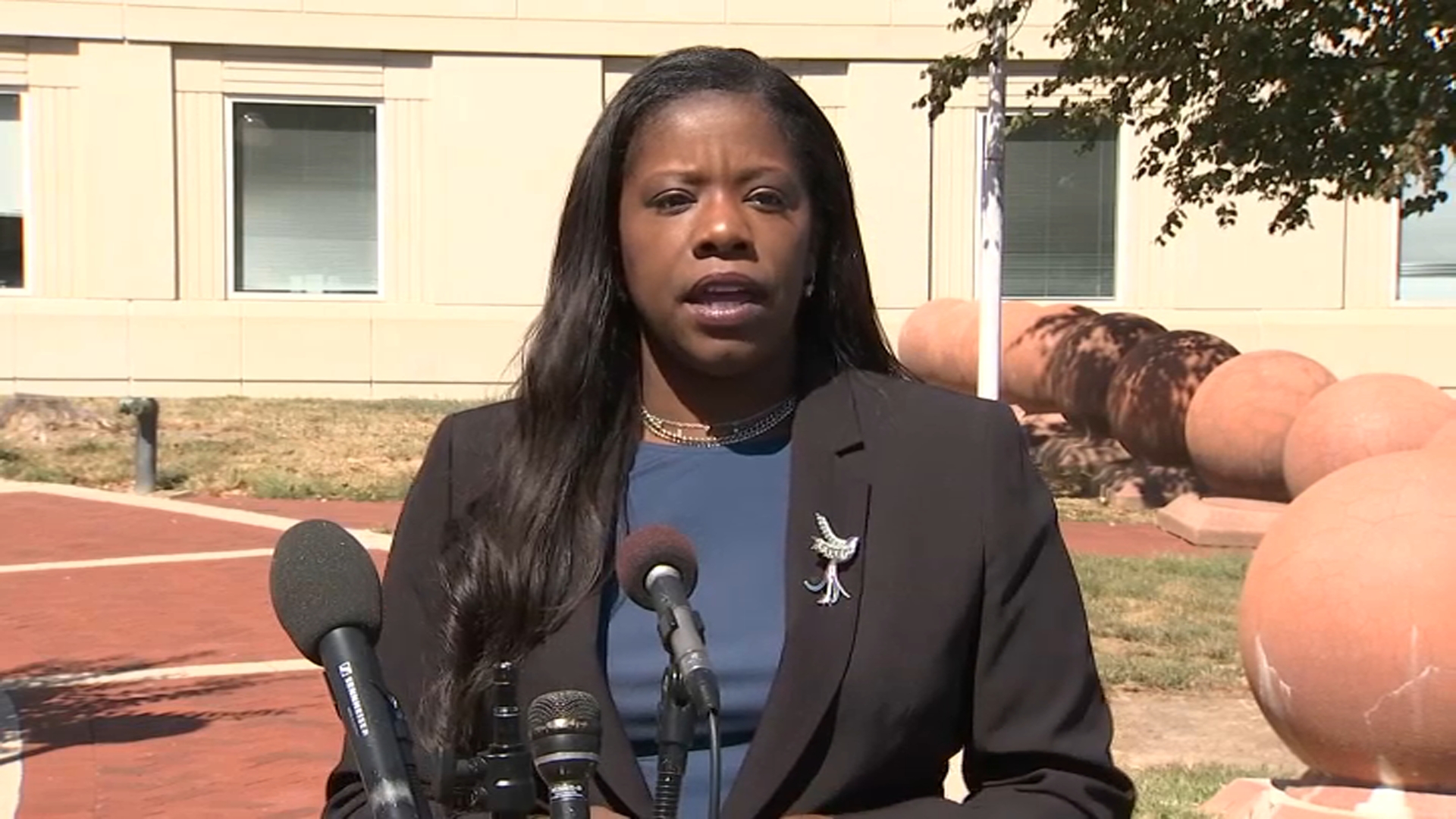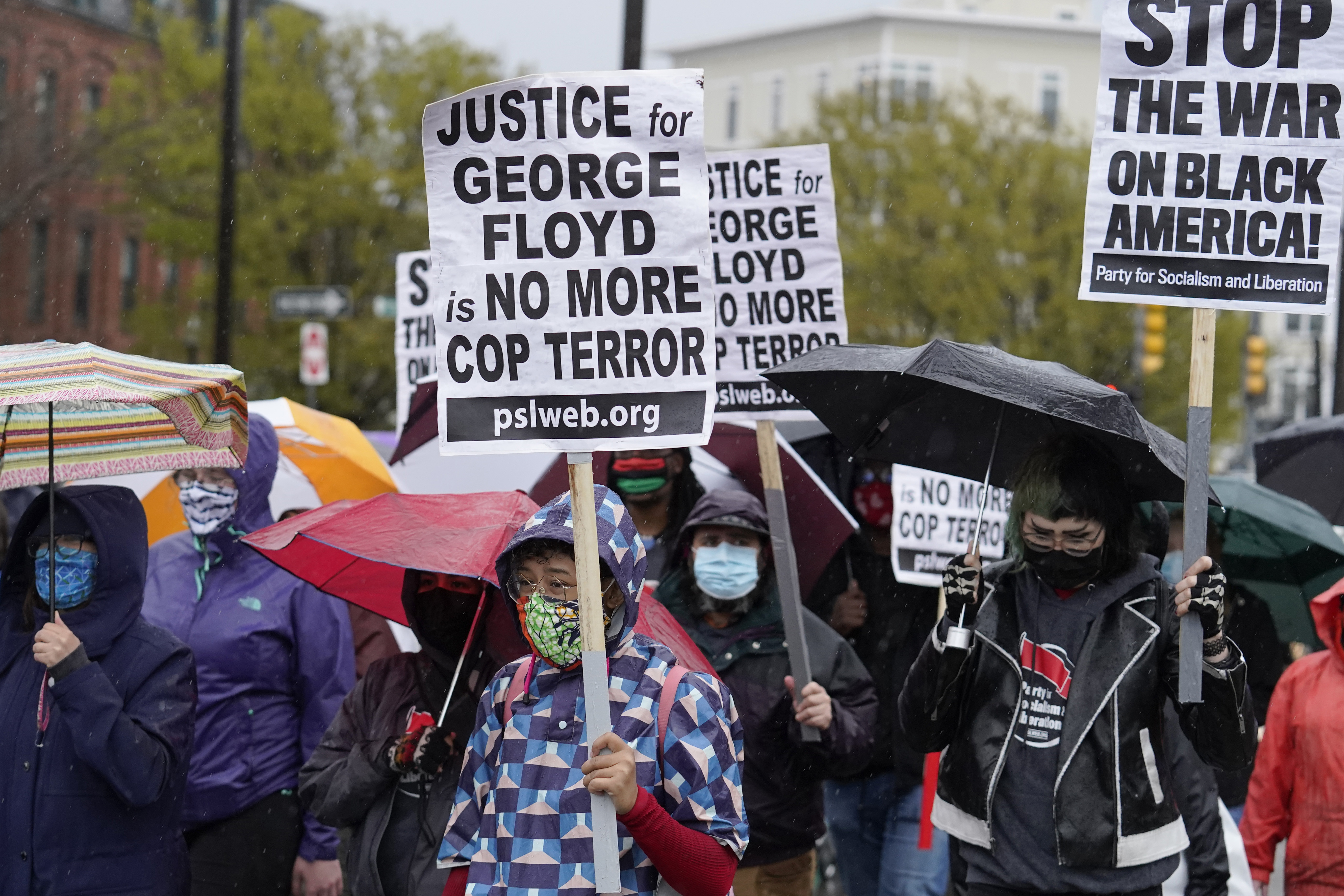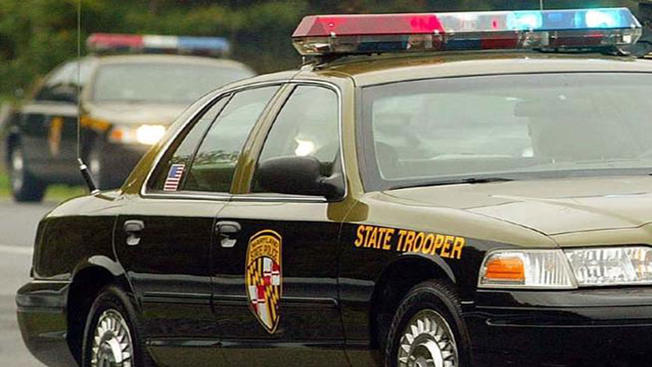The Prince George's County state’s attorney released a list on Friday with the names of police officers who she will not allow to testify in court because of alleged credibility issues.
The list includes the names of 45 current and former Prince George’s County Police Department officers, plus 12 officers from other agencies in the county. The officers could have been called to testify in cases under investigation or that have been appealed.
“We have a duty and obligation to not only assess the credibility of each and every witness on behalf of the state, but also [to] ensure that the pursuit of justice includes the bold and necessary reforms our justice system calls for,” State’s Attorney Aisha Braveboy said in a statement. “This is what our residents expect and deserve – a better and more fair system in Prince George’s County.”
Prince George's County police did not immediately issue comments in response to inquiries Friday morning.
We've got the news you need to know to start your day. Sign up for the First & 4Most morning newsletter — delivered to your inbox daily. >Sign up here.
The police union said it opposed the publication of the list and has been in discussions with PGPD and the country attorney, in a statement released Saturday.
The union said it was "baffled" by the inclusion of officers who have not been found guilty in criminal or administrative proceedings and "we fail to understand" why former employees were named.
"It would seem that the release of this list was predicated not on a good faith effort to promote reform, but rather upon embarrassing and alienating our brothers and sisters who risk their lives for this community on a daily basis," the statement read.
Braveboy answered questions from News4 on Friday about why she chose to make the list public.
“The individuals who are on this list, we are confident should be on this list and should not be testifying,” she said.
“I think protecting those that have made mistakes and have violated the public trust is a mistake,” Braveboy continued. “I think it does a disservice to the good officers in our department, and I hope the county sees it as that and celebrates the officers who are doing a good job and holding those who are doing a bad job accountable.”
Some officers on the list have had credibility issues for years, the prosecutor said.
Braveboy released the list in a joint statement with Baltimore City State’s Attorney Marilyn Mosby, who published the names of Baltimore officers.
According to a published policy, the Prince George’s County’s state’s attorney’s office will not sponsor officers’ testimony if the office has evidence that suggests that:
- “The officer made a material misstatement under oath, in an affidavit or probable cause statement, or whose dishonesty affected the charging status of a civilian;
- The officer was convicted of an impeachable offense or convicted of an offense that was committed in his/her official capacity; or
- the officer acted in a manner that demonstrates he/she is biased (i.e. racist, homophobic or otherwise prejudiced).”
The office added: “In instances where the evidence does not fall within the above categories, the SAO will exercise its discretion in reviewing the facts and circumstances to determine the appropriate action (i.e. when an officer is acquitted of an impeachable offense). The current list of officers that the SAO will not sponsor consists of both active and inactive law enforcement whose conduct falls within at least one of the enumerated criteria listed above."
The police union said the policy "is a far cry from the more detailed terms that we discussed as a group several weeks ago." They want the policy to include details on how officers can get removed from the list.
"We will continue to work alongside the Department to remove officers from the list or, alternatively, to ensure that officers are not harmed by their inclusion on the list in the event that the State denies removal of their name for just cause," a statement from the union said.
At that time, State’s Attorney Aisha Braveboy said the Maryland Attorney General’s office advised her against releasing the names, saying it was a violation of the Maryland Law Enforcement Officer’s Bill of Rights, which protects officer personnel records.
During the past Maryland legislative session, Anton’s Law was passed, allowing some police personnel records to be subject to the Maryland Public Information Act (MPIA), as of this month.
News4 filed a public information request for the list.
At the time of our report, the state's attorney said she had 28 officers on her list. It’s referred to as “Brady” after the 1963 Supreme Court case Brady vs. Maryland. John Leo Brady was convicted of murder. His sentence was later reduced because evidence was withheld during trial. Now all such evidence, including officer discipline records, must be disclosed to judges and defense attorneys.
This past summer Braveboy decided that 15 of her Brady list officers would not be given the opportunity to disclose, because she would not allow them to testify, calling their behavior “egregious.”
That decision caused a shakeup in the PGPD and some municipal departments in the county. Police leadership had to move the Brady officers into areas of policing that would not require them to testify or investigate cases that require testimony.
Keith Lotridge, Deputy Public Defender for Prince George's County, told News4 this summer that he wanted the list made public.
“I disagree with the AG. We are talking about my client's constitutional rights. What’s in the Maryland Declaration of Rights does not supersede the U.S. Constitution. My client has a right to due process — every single one of my clients.”
Stay with NBC Washington for more details on this developing story.




